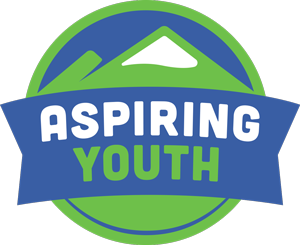 Now that school is out, it’s time to think about getting your kids involved in summer programs. With options like sports camps, tutoring sessions and wilderness clubs (not to mention good old fashioned unstructured boredom) it can be hard to decide which camp might be best for your child. Maybe you want your child to try something new, but aren’t sure he or she would be interested. Maybe you’re concerned about your child’s behavior if they’ve struggled at a camp or in school in the past. Aspiring Youth summer camps might be the perfect for your child.
Now that school is out, it’s time to think about getting your kids involved in summer programs. With options like sports camps, tutoring sessions and wilderness clubs (not to mention good old fashioned unstructured boredom) it can be hard to decide which camp might be best for your child. Maybe you want your child to try something new, but aren’t sure he or she would be interested. Maybe you’re concerned about your child’s behavior if they’ve struggled at a camp or in school in the past. Aspiring Youth summer camps might be the perfect for your child.
Aspiring Youth offers a variety of camps based on interest, as well as a general age-based camp (the most popular program). This camp is great for kids who are typically functioning but have some difficulty making friends, or those who have diagnoses of Asperger’s, autism, ADHD and other varying ability levels.
There are a few key components of Aspiring Youth camp that make it unique:
-
Small group ratios with masters-level facilitators. The camper to facilitator ratio is 4:1, which is almost unheard of for a summer camp. This allows for activities in small group settings and consistent feedback and facilitation of social interactions. Lead facilitators have masters degrees in fields such as social work, mental health counseling, special education, applied behavior analysis, and speech language pathology. Their knowledge and skills provides meaningful integration of social skills in all activities.
-
 Outdoor-based activities. Many of the kids we work with prefer to stay indoors playing video games and spend little time exploring the outdoors. Our camp is outdoor-based. We meet up at various parks in the greater Seattle area for games, hikes, and unique experiences with nature. Twice a week, campers engage in trail renovation projects. This gives kids a greater appreciation for the parks they visit and instills a sense of pride in accomplishing something important. It also provides an opportunity for working together in groups on a skill most have not done before. Campers stay motivated to engage in trail restoration by the $15 stipend earned at the end of the week.
Outdoor-based activities. Many of the kids we work with prefer to stay indoors playing video games and spend little time exploring the outdoors. Our camp is outdoor-based. We meet up at various parks in the greater Seattle area for games, hikes, and unique experiences with nature. Twice a week, campers engage in trail renovation projects. This gives kids a greater appreciation for the parks they visit and instills a sense of pride in accomplishing something important. It also provides an opportunity for working together in groups on a skill most have not done before. Campers stay motivated to engage in trail restoration by the $15 stipend earned at the end of the week. -
Goal setting around friendship. One thing we like to make clear to our campers is that everyone at camp is working on friendship or communication goals. At the beginning of each week, campers do small-group goal setting: a strength goal to demonstrate one of his or her strengths and a stretch goal to work on something he or she struggles with. Facilitators remind campers about their goals and provide opportunities for them to work on their goals throughout the week. At the end of the week, campers and their facilitators reflect.
-
Options in activities. As most understand, kids need to be able to make choices about their activity if we expect them to be engaged. They like to feel empowered. At camp, we always have options for kids. Some involve structured activities and others less structured. Regardless of the option each child chooses, there is always a facilitator providing feedback and assistance.
With six weeks left of summer, there’s plenty of time to get your child involved in Aspiring Youth camp. There are several sites in the greater Seattle area. Please visit our website for more information and to schedule an enrollment meeting for your child.
Breea. M. Rosas, Ed.S.
Breea graduated from Central Washington University with a Bachelor of Arts in 2013. Her undergraduate major was Psychology, with a minor in Family Studies. She completed her Educational Specialist degree in School Psychology from CWU in 2016. She is currently a school psychologist for Federal Way Public Schools. Breea has worked with Aspiring Youth as a program coordinator/facilitator for summer camps and served on the curriculum development team. Additionally, Breea has experience working with adults of varying abilities, including autism spectrum disorder, as well youth in the school setting.


Leave A Comment
You must be logged in to post a comment.